Roger Federer hopes ‘I can be somewhat competitive’ in final match
Roger Federer is full of surprising revelations on the eve of his competitive finale
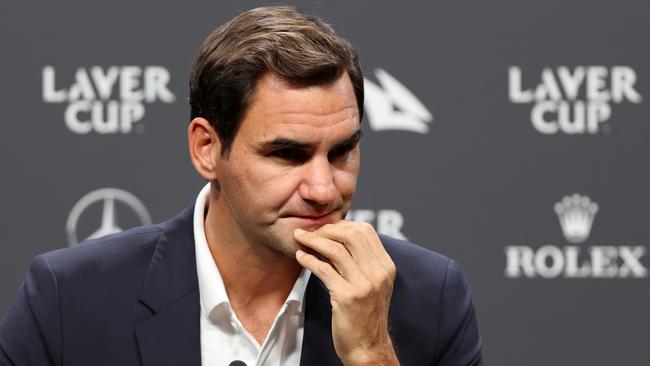
Roger Federer says he doesn’t want “to hijack” the Laver Cup event at which he has elected, this week, to play his final match on the professional tour.
Well, he has failed there.
He hasn’t accumulated many failures in his career, but this is a big one – this week may as well be the Federer Cup, but there won’t be anyone begrudging him his scene-stealing role.
In fact, in a rare glimpse of vulnerability, he said he was grateful for “having all the other guys around”. He said he had witnessed so many other players announce their retirement, play their last tournament and “then at one point, you lose and there you stand all alone”. When his own time comes, he said, he didn’t want “to be lonely”.
Thus he has chosen a doubles match on Saturday (AEST) to be his last: not on his own, but with a partner. And it is a team event so he will have a fairly notable captain at ringside too. “Having Bjorn Borg on the bench with me for my final game,” he said, “resonated also in a big way.”
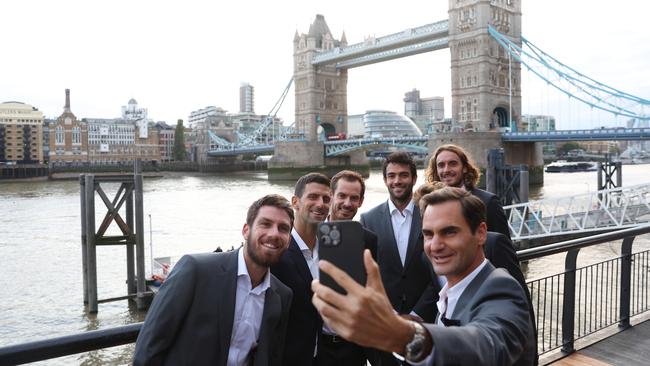
That all works well; as a solution, though, clearly he simply isn’t fit enough to go out on his own. He couldn’t get through a singles match.
Even for a doubles match, he said he was “nervous” because he had been off the circuit for so long. “I hope I can be somewhat competitive,” he said.
The mind returns, at this point, to Tiger Woods at St Andrews only two months ago – quite possibly his last Open – finding himself six over after seven holes. These are the greatest of the greats; when they go, who couldn’t wish them the most venerated of final bows?
Federer’s exit commenced with the retirement announcement last Thursday and continued here, at the O2 arena, with a half-hour press conference, Federer dressed elegantly – as ever – in a blue blazer and white tennis shirt. He talked everyone patiently and eloquently through the decision-making process and exposed glimpses of the competitor that he has kept masked for two extraordinary decades.
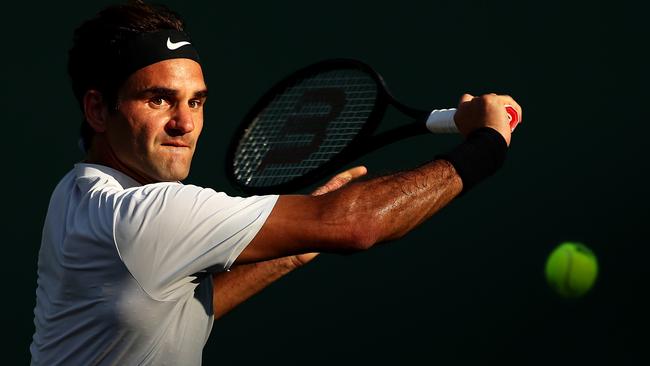
When he was asked what he would miss the most, he said it was more a “love-hate” thing and talked about the process of match preparation. “I love tying my shoes,” he said, “getting ready, putting the bandana on. I look in the mirror (and say), ‘Are we ready for this? Yeah, OK, let’s go.’
“As much as I love it, I’m happy I don’t have to go through it again. Having those knots in my tummy, waiting all day, eating breakfast, thinking about, ‘OK, tonight, I’ve got another big match; oh, I’ve got another 15 hours to wait for it.’ It’s fun but it’s stressful, and it’s slow days there. A tennis player waits a lot.”
His own longest wait has been the one that ended with the conclusion that retirement was the only option. When the rehab on his knee wasn’t going to plan, he said he started “getting too pessimistic”. He was already in that frame of mind when he had a scan that “wasn’t what I wanted it to be”.
“At some point you sit down and go, ‘OK, we are at an intersection here, at a crossroads, and you have to take a turn. Which way is it?’ ”
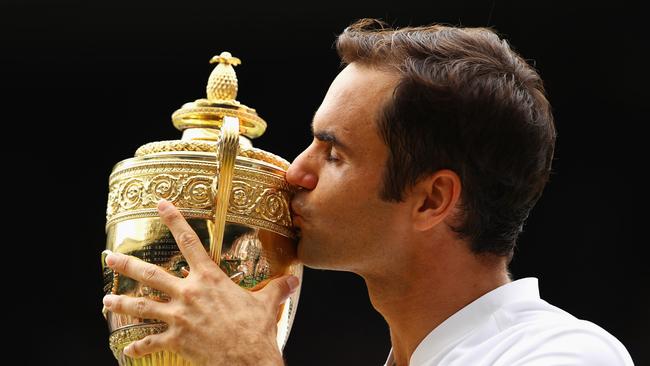
Around Wimbledon fortnight he still believed he might have been able to continue. It wasn’t long afterwards that he reached the opposite conclusion. Retirement can be an intensely traumatic experience. Countless athletes have spoken about their search for a new identity and the difficulty of accepting that the adrenaline highs of sporting success will probably never be matched.
This very subject is explored in After the Roar, a documentary made by Brian O’Driscoll, the Irish rugby hero, that will air on Saturday (AEST), around the same time Federer will be soaking up those roars for the last time. O’Driscoll talks about the “battles” he faced when the roars were no more, and he talks to AP McCoy, the retired jockey, who says: “A sportsperson is the only person who does die twice. It’s like a different life, it’s like someone has taken away everything.”
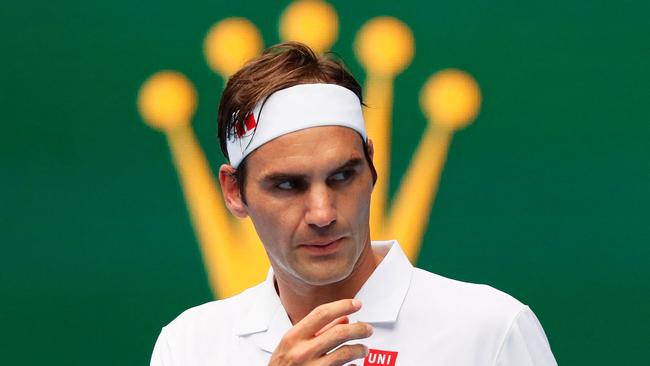
What will next week look like, Federer was asked. “What I’m going to do next,” he answered, “is I want to read a lot of what maybe a lot of you (the press) have written and a lot of TV stuff.” That is an interesting contrast: from the noise of one week to the contemplative quiet of every week thereafter.
Yet he knows he won’t – or cannot – stay away. “I won’t be a ghost, you know,” he said, his voice breaking slightly with emotion as he explained himself. “It’s funny, I talked about Bjorn Borg just before. I don’t think he returned to Wimbledon for 25 years. But I don’t think I’ll be that guy. I feel tennis has given me too much. I have been around the game for too long, have fallen in love with too many things.”
So he has known, too, that this farewell would be hard. He was very specific about where he stood. Asked a long question about being “satisfied with the decision”, he returned to correct the initial assumption. “I’m not satisfied,” he stipulated. “I’m happy. I’m happy with the decision, because it’s the right one.”
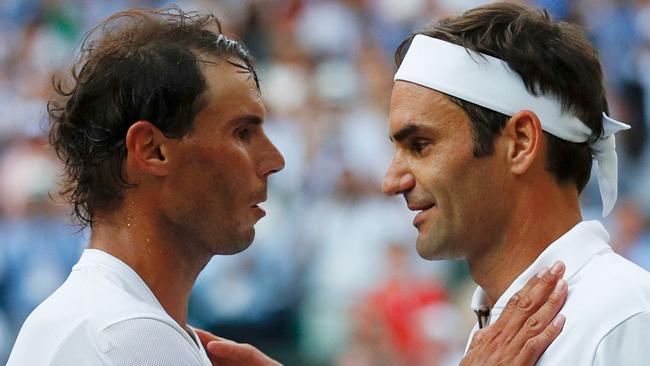
And though he was delighted that his swansong would be in London – “This city has been special to me” – he has been dreading it so much that he said it felt like a grieving process.
“I was,” he said, “in a very worried, scared place to face the music, the media, the fans and everything, being able to talk about it in a normal fashion without getting emotional.”
So he doesn’t want these few days in Greenwich “to be a funeral”. He wants it to be “fun” and “not everybody going, ‘Oh, I’m so sorry, are you OK?’ ”
Those are the instructions for the army of Federer fans that will pack the O2 arena. It’s a celebration, not a commiseration.
It will be bittersweet, but bittersweet is how he is feeling too. “The bitterness,” he explained, is because “you always want to play for ever.”
Fair enough, there are a few others who wanted that of him too. “I love my career from every angle,” he said.
And there is a considerable ditto to that too.
The Times


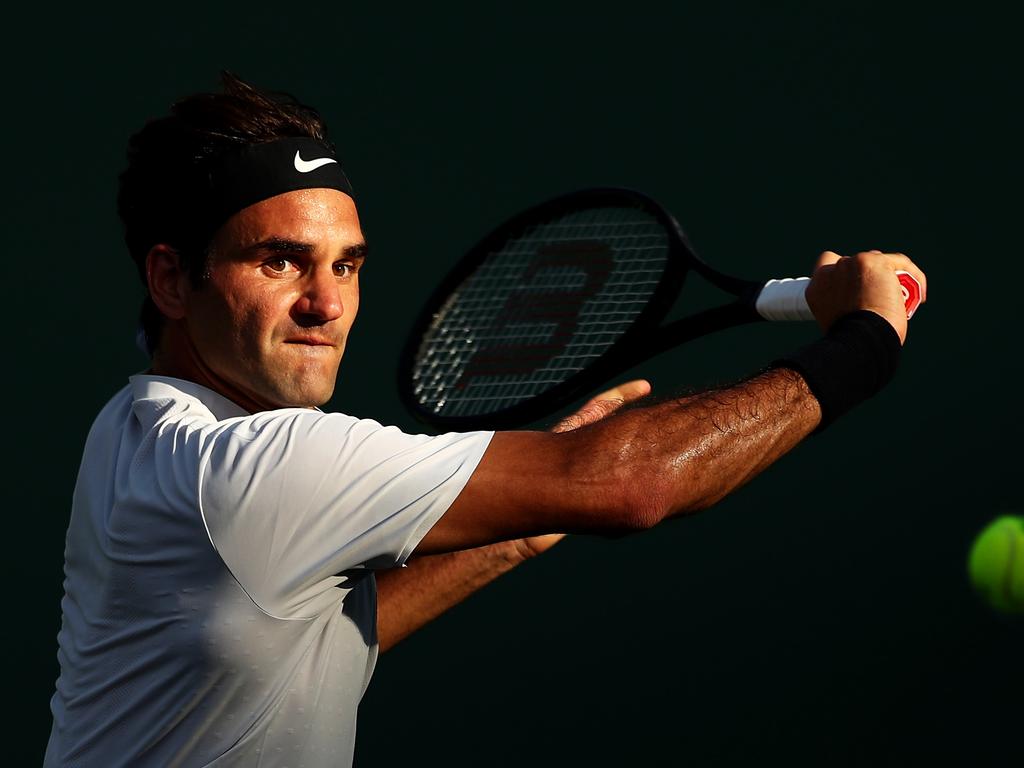
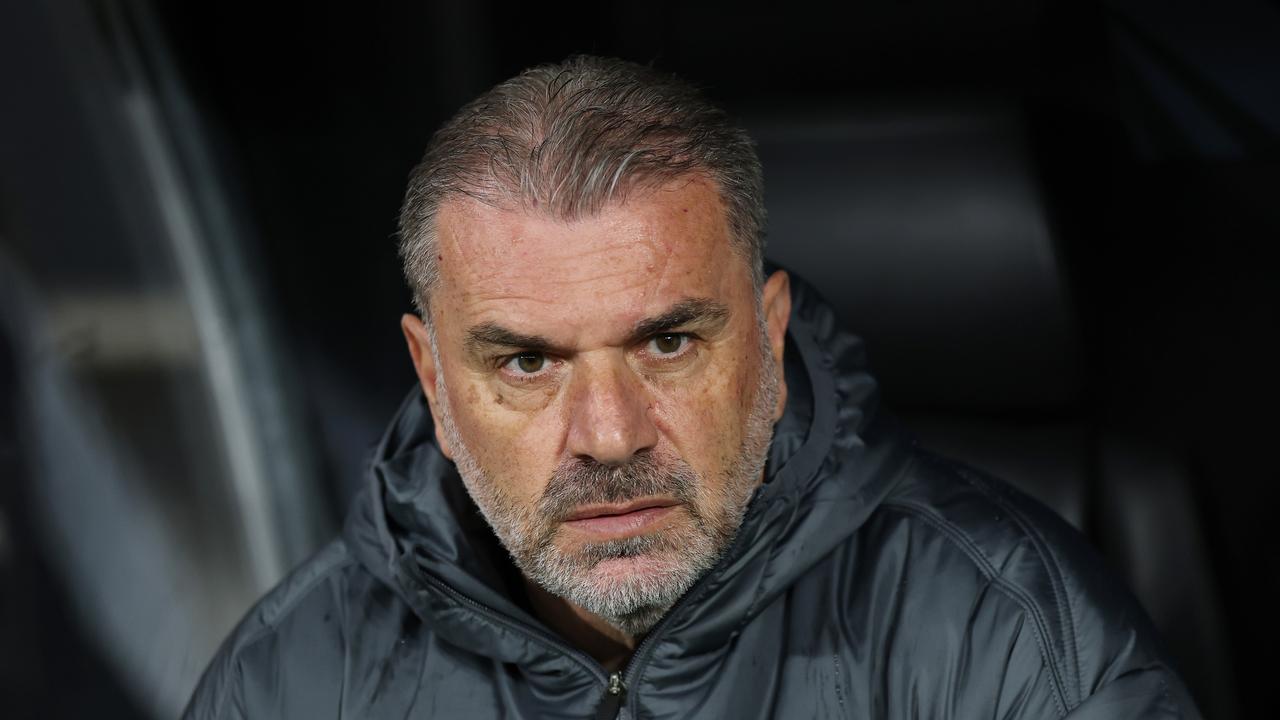

To join the conversation, please log in. Don't have an account? Register
Join the conversation, you are commenting as Logout